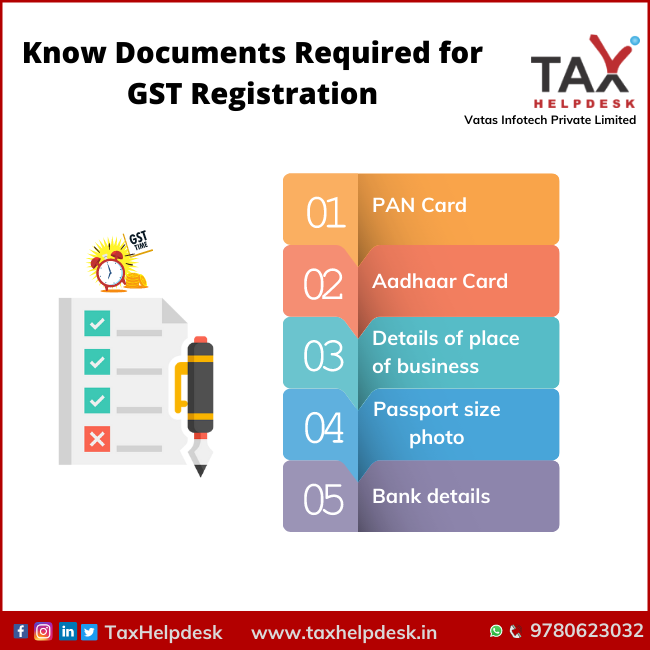Why Singapore GST Registration is Crucial for Your Startup
Why Singapore GST Registration is Crucial for Your Startup
Blog Article
The Ultimate Overview to Streamlining the GST Enrollment Refine and Requirements for Small Service Owners

Comprehending GST Basics
To grasp the principles of the Product and Services Tax Obligation (GST) system, tiny service proprietors should initially recognize its underlying principles and implications. Under the GST program, organizations are required to accumulate and sign up tax obligation on part of the federal government, ensuring openness and compliance.
One of the essential principles of GST is input tax obligation debt, which permits organizations to claim debt for taxes paid on their acquisitions. Recognizing these basic concepts is important for little organization owners to navigate the complexities of the GST system and make certain compliance with the regulation.
Eligibility Criteria for Enrollment
Having developed a foundational understanding of GST concepts, little business owners should now meet specific qualification standards to continue with the enrollment procedure (Singapore GST Registration). Companies that were registered under the previous tax obligation regime (BARREL, solution tax, etc) are additionally mandated to register under GST. Agricultural companies that just supply create out of main manufacturing are excluded from GST enrollment.
Documents Needed for GST Enrollment

Simplified Enrollment Process Steps
Complying with the collection and confirmation of the requisite documents, the enrollment procedure for GST can be navigated with a series of simplified actions developed to promote effective compliance for local business proprietors. The first step involves going to the GST portal and selecting the 'New Enrollment' alternative. Consequently, the candidate must load in Part A of the GST REG-01 kind with details such as frying pan, mobile number, and e-mail address to get an OTP for confirmation. As soon as the OTP is obtained and gotten in, a Temporary Recommendation Number (TRN) is created for further process. The next step needs submitting Part B of the type with necessary company information, posting sustaining files, and finishing the confirmation procedure utilizing DSC my sources or EVC. Upon effective confirmation, an Application Reference Number (ARN) is issued, showing the completion of the GST registration process. By adhering to these simplified steps, small company proprietors can effectively register for GST and guarantee compliance with tax laws.
Tips for Ensuring Conformity
To maintain regulatory adherence and functional honesty, diligent oversight and aggressive steps are critical in making sure compliance with GST requirements for local business proprietors. Small company owners must stay updated with GST regulations, filing due dates, and any kind of adjustments in tax rates to avoid charges and maintain a great standing with tax obligation authorities. One crucial tip for compliance is to keep precise and in-depth records of all purchases, consisting of invoices, costs, and invoices associated with GST. Regularly resolving economic records with GST returns pop over to this site can assist in recognizing and rectifying any disparities quickly. Additionally, conducting routine interior audits or looking for expert help can ensure that the organization is adhering to all GST guidelines correctly. It is additionally critical for small organization proprietors to invest in GST-compliant bookkeeping software that can improve the tax obligation declaring procedure and decrease errors. Finally, going to GST recognition workshops or training programs can improve understanding and conformity with GST policies, inevitably profiting the business in the future.
Conclusion
In conclusion, local business owners have to recognize the basics of GST, satisfy the qualification standards, collect required records, and adhere to the simplified enrollment procedure steps to ensure compliance. By simplifying the GST enrollment process and requirements, local business proprietors can prevent penalties and run their businesses smoothly within the lawful framework - Singapore GST Registration. It is critical for local business proprietors to remain educated and compliant with GST policies to maintain a successful company operation
Small company owners seeking GST registration need to ensure they gather and send the essential documents to finish the registration procedure efficiently. The papers needed for GST registration normally consist of evidence of business enrollment or unification, PAN (Permanent Account Number) card of the business address, entity and identification proof of the promoters/partners/directors, photos, address evidence of the area of company, bank account declarations or canceled cheques, and consent types. Participating in GST awareness workshops or training programs can boost understanding and conformity with GST laws, ultimately profiting the service in the lengthy run.
By simplifying the GST registration process and requirements, small company proprietors can avoid fines and run their companies efficiently within the lawful structure. It is important for little organization owners to stay compliant and enlightened with GST guidelines to maintain a successful organization procedure.
Report this page